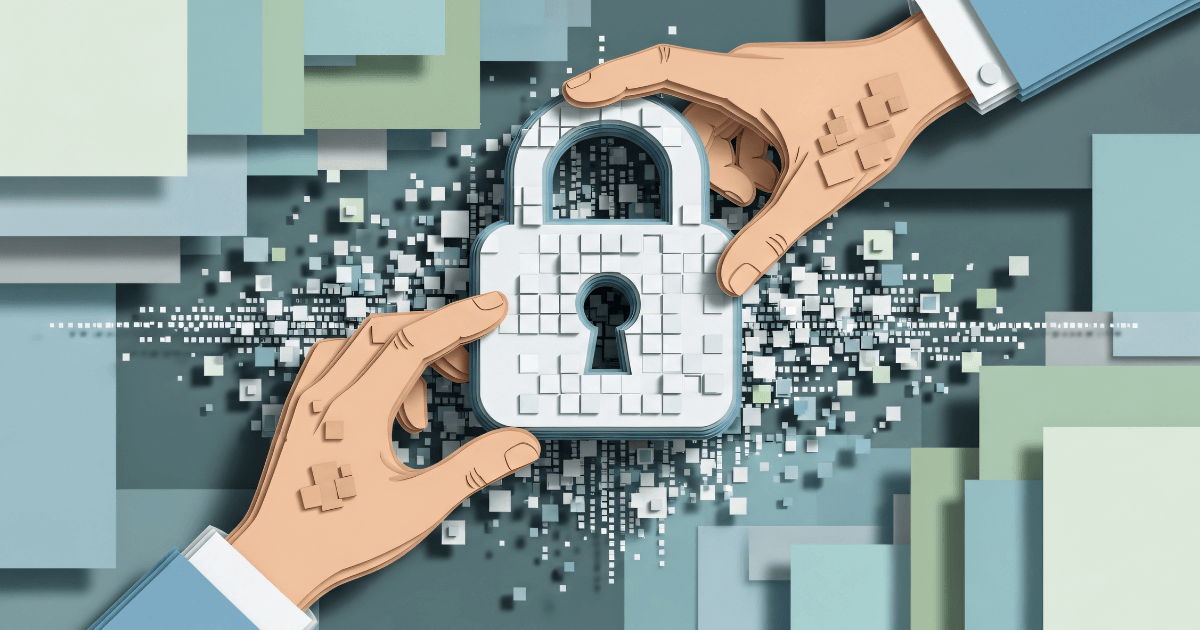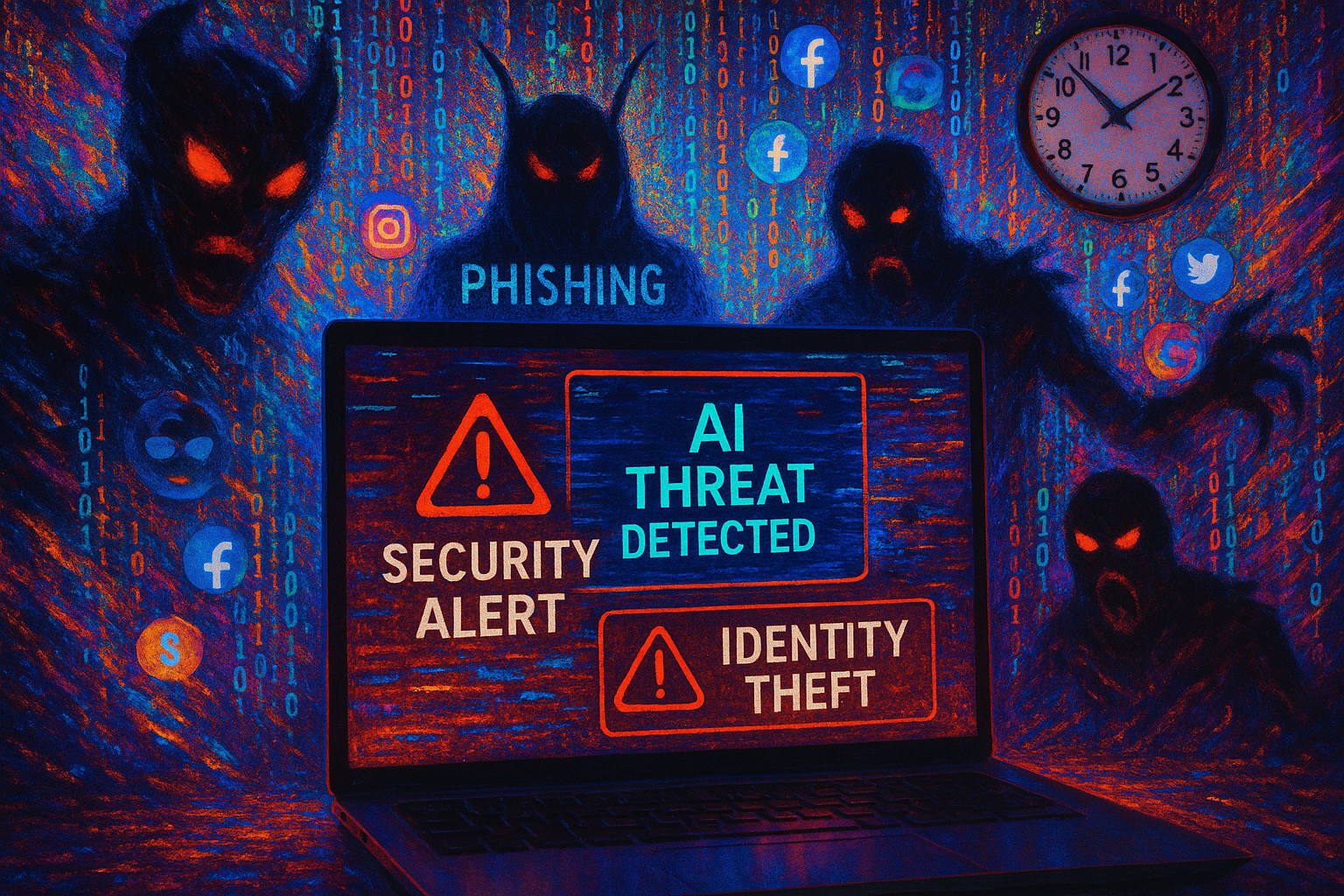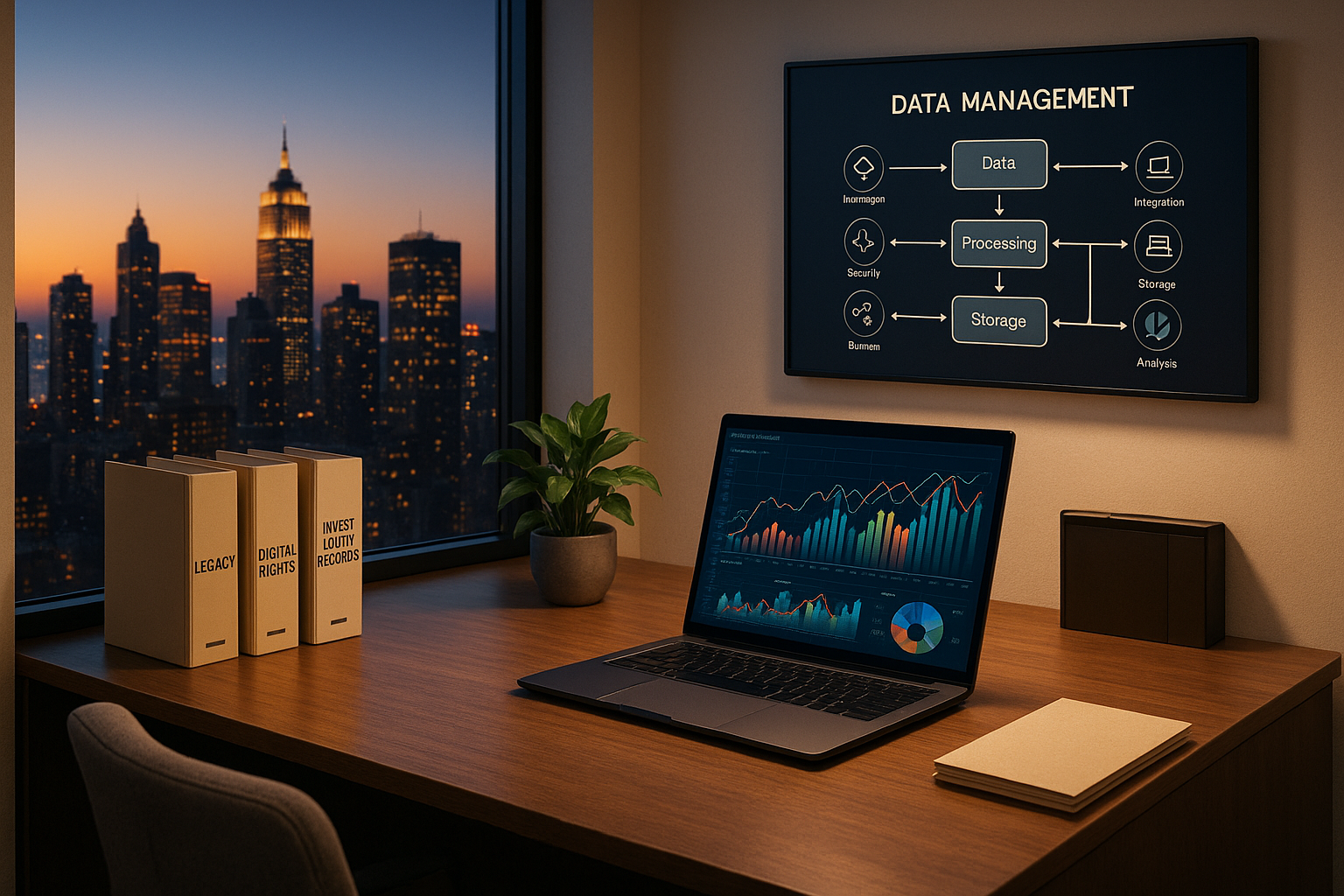5 min read
Meeting the New, AI-Enabled Face of Risk
When we introduced our OmniNet Bridge solution in 2014—known to many of you as My Digital Shield—it represented the next generation of network...
3 min read
![]() Total Digital Security
:
December 17, 2014
Total Digital Security
:
December 17, 2014
Not long ago, if someone asked what would be the one thing you’d grab out of a burning house, most people probably mentioned photo albums, wallets, family heirlooms, and the like. Now, everyone is likely to name their computer or smartphone. That’s because we live a lot of our lives in cyberspace. It’s made the business of managing daily activities much easier, but that convenience comes with a risk: All of our personal information is floating around out there, vulnerable to anyone who knows how to access it.
Protecting personal information is something everybody has to worry about these days. To help you evaluate your own circumstances, we suggest thinking in terms of the four main components that make up your internet technology. Each is important, in fact if you’re vulnerable in any one of these areas, it makes you vulnerable everywhere.

1. Protect your device.
Computer viruses have been around almost as long as personal computers, but viruses aren’t the only thing to worry about. There’s malware, spyware, phishing, ransomware, etc. Anti-virus software and firewalls are a great start, but if you really want to protect your information, you need to use real-time, pre-emptive solutions.
All of your personal information – contacts, bank account numbers, credit card numbers, maybe even stored passwords – is on your smartphone for the taking. It may be a pain, but always activate your screen lock with a hard-to-guess password, and set your device up so that you can wipe its contents from your home computer if you do lose it.
2. Protect yourself when you’re on the internet.
Think about it, any time you’re on the internet, your information is zipping around out there in cyberspace. It’s not that hard for someone who knows what they’re doing to intercept it. When you think about how many things you do over the internet, that’s kind of scary.The answer is to use a secure VPN provider. A VPN – or “Virtual Private Network” – routes your internet connection through a series of other computers, which, in effect, gives you a cloak of invisibility. No one can tell who you are or where you’re logging in from, and the information itself is encrypted. A VPN is one of the best ways there is to protect yourself when you’re online, and you should be using one every time you access the internet.
3. Own and control your personal email account.
There’s no such thing as free email. If a business offers you free email, you have to then ask yourself how they’re making their money. When it comes to free email services, you aren’t the customer, you’re the product. Or, at least, your data is. They give you a free email account, and then they turn around and sell the personal information that you provide. This can include some of the most tender and sensitive information in your life. This is an area in which you really do get what you pay for. With a private email account, you pay a small fee for the account…but that’s it. You’re the final customer. There’s no one downstream paying for your data. You’re the only one with access to it, and you and you alone determine how to share it.
4. Backup and lock down your data storage.
The cloud sounds like a great idea. A simple and free way to share documents with others and to back up your information so that a random power surge won’t take out years worth of family photos. Just like with email, though, it’s all about data mining. You’re giving the cloud provider your private information, and they’re turning around and selling it.
Again, the answer is to go private. Stay away from the cloud, and contract with a private company to store all of your data. When you do that, it’s always there when you need it, but there are no prying eyes scanning your information. And, with today's apps and browser-enables software, it feels just like the cloud anyway, when it comes to convenience and flexibility.

|
The Four Components to Total Digital Security
Controlling your personal data means controlling every way in which you use and access that data. Your personal security strategy has to encompass your computer, your phones and tablets, your online connection, your email, and your data storage. Total Digital Security recommends the most innovative, effective and affordable cyber security solutions available today, to address all elements of protecting yourself and those around you from online risk in our everyday lives. |

5 min read
When we introduced our OmniNet Bridge solution in 2014—known to many of you as My Digital Shield—it represented the next generation of network...

9 min read
Over the past decade writing these letters, I’ve made it my mission to help you navigate the digital age with confidence and resilience. If I have...

4 min read
For generations, family offices and ultra-high net worth families have mastered the art of estate planning — preserving wealth, ensuring succession,...